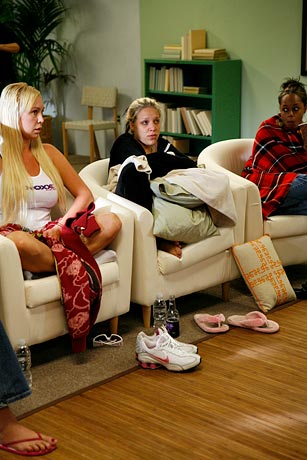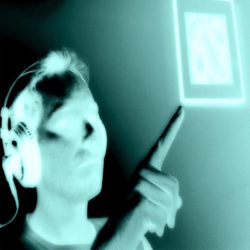
Okay, so I couldn’t resist. I don’t have cable TV in my own home, but since I’ve been staying at my parents’ house (recovering from knee surgery) I’ve succumbed to the power of the remote. Last night I sat in front of the tube for three hours straight, first to watch the Democratic debate and then to check out the latest episode of Celebrity Rehab.
Now, for those who don’t know, I spent the last three years of my professional life working at an adolescent substance abuse recovery center, so I could pull a Pete Townshend and claim my watching the show is strictly “research.” The truth is, though, I cannot look away.
At first I was disgusted by the entire premise of the show. Especially disturbing were the scenes of an obviously mentally ill Jeff Conaway weeping and threatening suicide. It quickly dawned on me though, as I continued to watch on, that what I was seeing on the show almost exactly mirrored what I saw day in and day out on the job. I’m telling you, it’s positively uncanny. Everything is right out of the Adolescent Chemical Dependency Unit playbook — from the patients trying to hook up with each other, the sneakiness and rule breaking (secret cell phone conversations), the “these rules are stupid” attitude, the constant threats to leave treatment, the mind-boggling contradictory statements, the rationalizing of any and every behavior, the horror stories of abuse, the emotional immaturity, the group dynamics, the crazy visitors and dysfunctional relationships.
The main difference, other than the cameras and microphones, is that the majority of the kids I worked with were court-ordered and had zero motivation for change. The similarities are striking though, and how it is that rural Kentucky teenagers can be so much like washed-up semi-celebrities, I just don’t know. The obvious answer is: “They’re all addicts.” But I don’t think I’m buying that.
In fact, the more I think about it, the less sure I am about what “addiction” really is. Frankly, the party line towed by many addiction professionals — that addiction is a treatable, medical disease, based in the brain — seems to me to be a deeply confused misreading of the available data. I’m in the process of exploring some alternative approaches, which I’ll discuss in more detail some other time. For now, you can check out my Integral Recovery page, which is part of my new Integral Psychology Portal (an ongoing project to both clarify and share my evolving perspective on life and whatnot).


